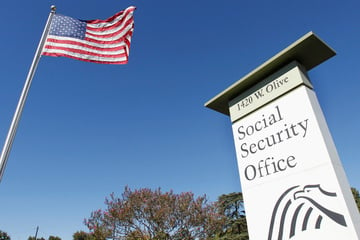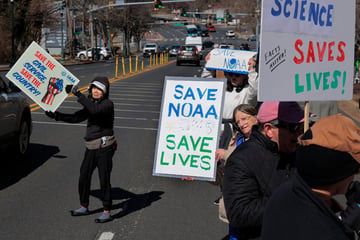From "citadel of hope" to parking lot: Pittsburgh's oldest Black church demands reparations
Pittsburgh, Pennsylvania - In the early 1950s, Bethel AME was the thriving center of Pittsburgh's Black community. Today, the former site of the church serves as a parking lot for the Penguins' NHL stadium. TAG24 NEWS spoke with Bethel AME's Rev. Dr. Dale Snyder about the history of the congregation and their ongoing fight for reparative justice.
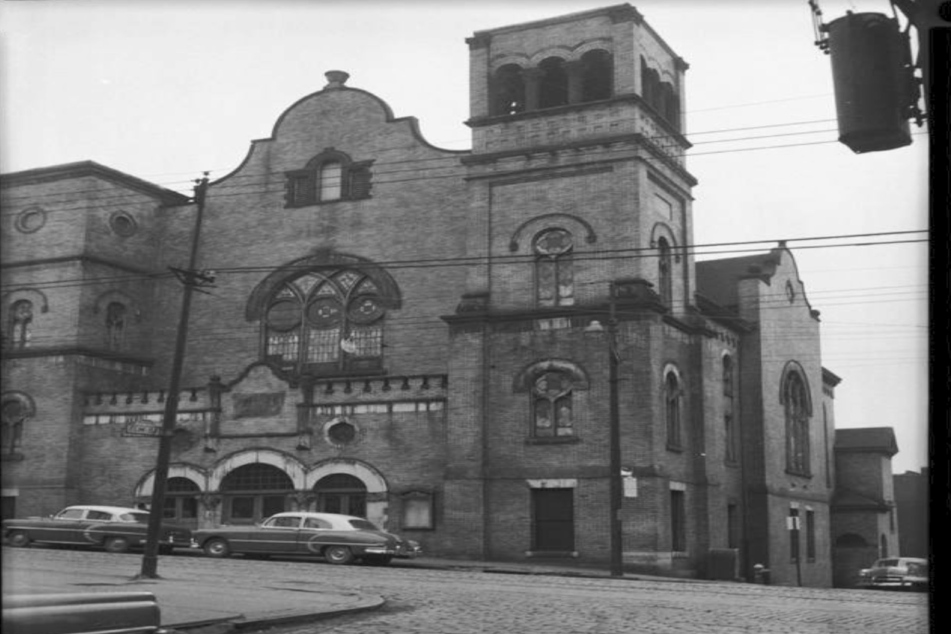
The Bethel African Methodist Episcopal (AME) Church – a former stop on the Underground Railroad – was founded in Downtown Pittsburgh in 1808.
After almost 55 years of labor, the sanctuary known as "Big Bethel" was completed in 1908. The building could seat 1,900 people.
"In the 1900s, segregation was still in existence, and areas where you can buy land and property were limited for African Americans," Bethel AME's current pastor, Rev. Dr. Snyder, told TAG24.
"When people came from the South, they came from the West, or wherever, when they see this citadel of hope that African Americans have built, they have hope that they can build their futures, their families."
Once home to the largest Black community in Pittsburgh, Bethel AME served as more than a spiritual gathering point. It was also a center for education, offering schooling to Black Americans at a time when public schools would not do so. They established a nurses association to treat Black people when hospitals barred them from receiving medical care.
A symbol of independence and self-sufficiency, Bethel AME hosted fraternities and sororities, Boy and Girl Scouts, and Little League teams. They fed the hungry, owned apartment buildings and homes so people in need had a place to stay, and served as an organizing center during the Civil Rights Movement.
"We were the end all and be all for whatever were the needs of the community," Snyder said.
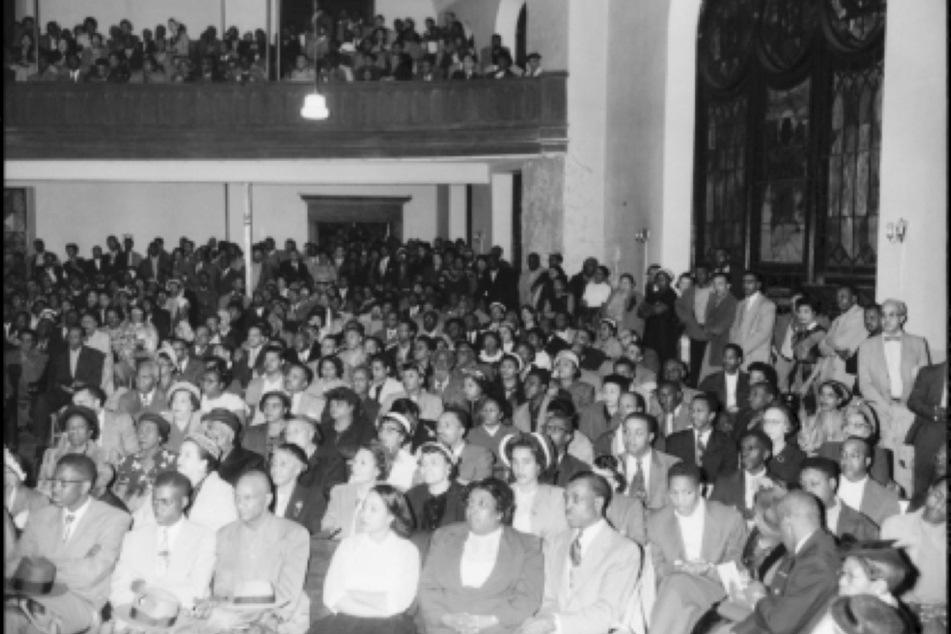
Bethel AME faces destruction
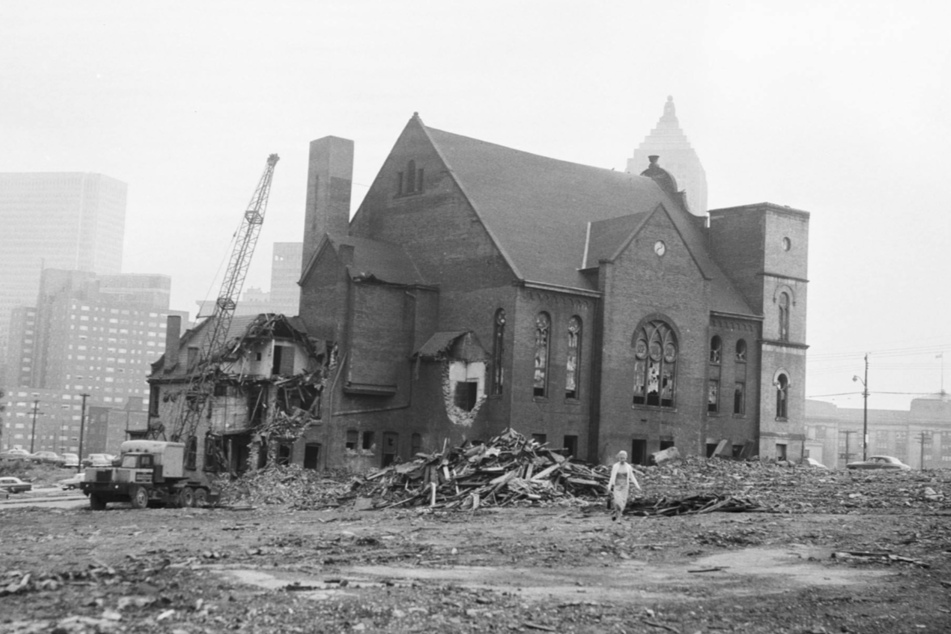
But that progress came to a sudden halt in 1957, when the church property was seized by eminent domain – which allows the government to take over private property in some cases – and destroyed.
The land later became part of the Civic Arena site, former home of the Pittsburgh Penguins NHL team.
"Our church was targeted to build what I call a playground for white people," Snyder said.
Though the city charter dictates that private property may not be seized from churches and cemeteries, Pittsburgh's Urban Redevelopment Authority (URA), not strictly a city entity, was able to do so.
The church was the last building to be demolished, and for a time, it stood like an island on a 23-acre sea of newly cleared land.
A nearby white church of the same size, Church of the Epiphany, was not destroyed and still stands to this day.
"Our congregants in this period, every Sunday they would walk and they would look at their building, praying to their God that their church would survive. They would look at Epiphany, which was right 428 feet away not torn down," Snyder explained. "Why couldn't our God save our building like their God saved their building?"
"That's the pain of racism and segregation and hatred and bitterness of Black skin. It was our citadel of hope for people, for education, where we buried our dead, we married our families, we baptized our children, and we encouraged them to have hope for the future."
The congregation received just $240,000 in compensation, which was not enough to build a sanctuary of the same size. Their current one seats just 900, and the church has lost two-thirds of its membership as a result. They have not had enough money to construct an educational wing to build on their training and schooling programs.
"They could not take our church except by using government vehicles of eminent domain, and it has the same effect as the Ku Klux Klan coming in and burning down our church," Snyder insisted.
Calculating the damage done
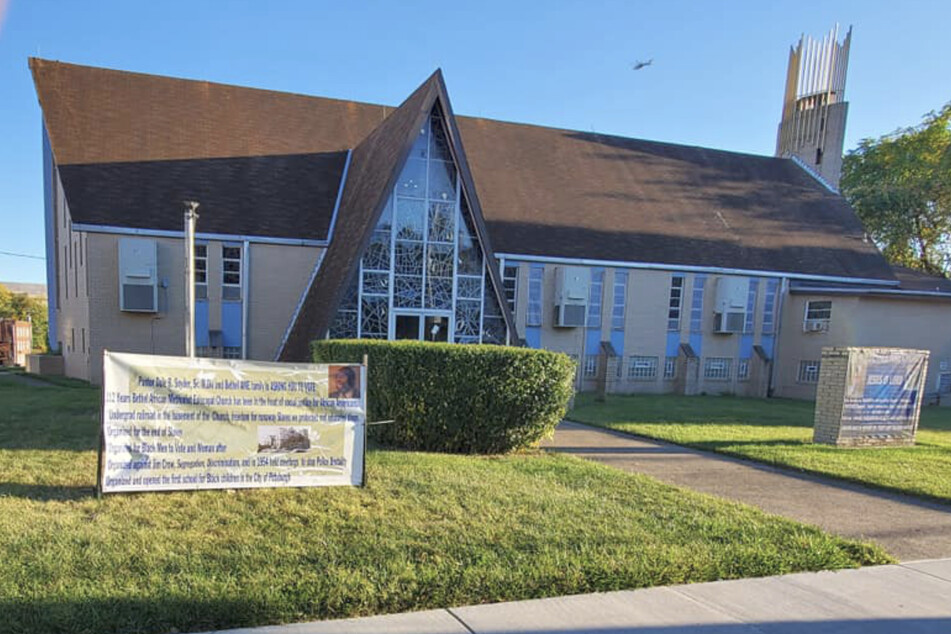
Today, the former site of Bethel AME is used as a parking lot for the Penguins' PPG Paints Arena, constructed in 2010.
But new development plans are in the works for the Lower Hill district, including to create walking paths over the former site of Bethel AME.
The current congregation was not consulted as those plans were made, having lost the rights to their own land.
Instead, the Sports & Exhibition Authority (SEA) owns the land, the Penguins have development rights, and the URA has a "me-too" agreement. All three have to achieve consensus before any land is developed or sold.
But even though the SEA and URA are publicly run, "they all make decisions in the best interests of the Penguins," according to Snyder. "They treat public money like it's private money."
One day, one of the community developers reached out to Snyder, saying the Bethel community "deserved reparations." When he asked what she had in mind, she responded that the developers wanted to put a plaque where Bethel AME once stood.
"I asked her at that point, 'Could you do me a favor?' I said, 'Could you please not speak for Bethel anymore? Let us do our research, and after we do our research, let us do what we can to speak for ourselves.'" Snyder responded.
He and fellow members of the Bethel congregation began meeting weekly to do that work and organize.
They started by calculating the sums they might have generated from their then-3,000-member congregation's weekly tithes had they not lost so many people due to downsizing. Snyder said this amount came to "anywhere from $500,000 to $1 billion," not to mention fundraising events they might have held.
They also looked at AME sister churches in other cities like Detroit, New York, and Chicago that were not destroyed and saw that those congregations had grown to 25,000-30,000 members. Additionally, they had developed the area around their churches and owned gas stations, credit unions, nursing homes, and schools. "They generate anywhere from $1.6-$2.4 million every Sunday, and they put that back in the community," Snyder said.
"They were able to really do what was needed in the community to help people out of poverty, but we were denied."
Today's fight for repair
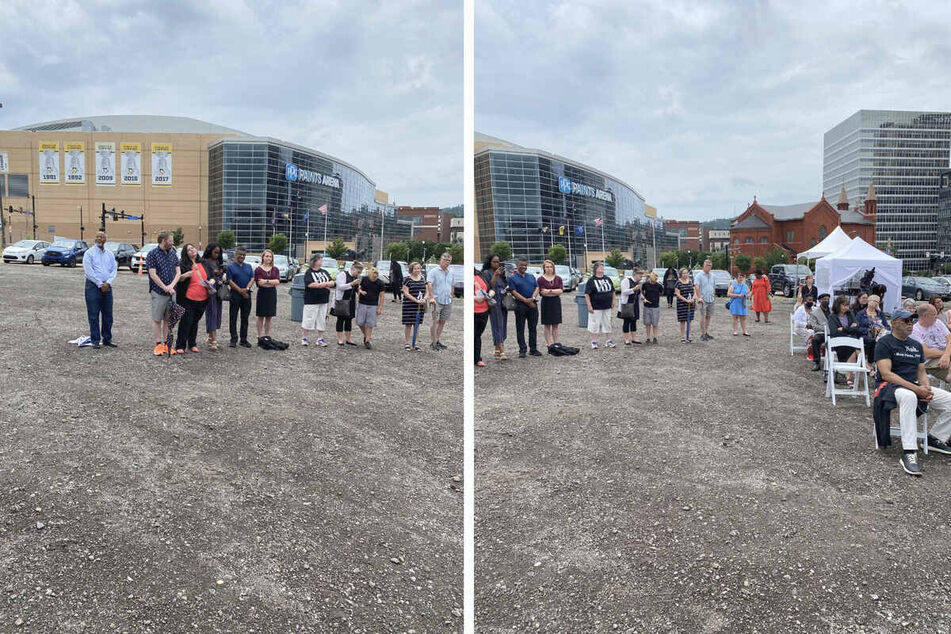
Now, Bethel AME leaders are fighting for the development rights to their historic land.
They have met with the mayor and local officials, arguing that the Penguins and the First National Bank have been guaranteed land in new development plans – meaning Bethel AME should receive the same.
Early in 2021, Snyder was surprised when the Penguins approached him saying they "believe in reparations" for Bethel AME. They offered to develop the land around the site of the current church, but the congregation still wants their original property back.
To that end, they have asked for a meeting with the URA, SEA, and Penguins, but progress is slow-going. "Getting our property back has been a hard conversation because they came in with all this smoke and mirrors. Everybody is kicking the can down the road," Snyder said.
For Bethel AME members, winning back the rights to their land means more than recovering financial losses. It's about addressing pain and trauma in their community – open wounds that continue to inflict damage.
One day, the Penguins invited Snyder and several church officers to a hockey game. They put out cones in the parking lot to indicate where Bethel AME once stood.
"When I looked across and saw that land, my heart sunk. I wanted to cry because I felt the pain of our people. They picked this prime land downtown with a vision for the future, and I tell you, it was emotional because I could hear their tears. I could hear their voices," Snyder recalled.
"That was probably one of the most painful experiences of my life, just envisioning being alive during that time and seeing a wrecking ball hit that building that took you over 50 years to build. Can you imagine the pain and the suffering and the dehumanization of our people?"
Snyder has found that there is a lack of knowledge in the wider Pittsburgh community about the realities of systemic racism. That's why community education has become a central part of Bethel AME's advocacy. He and his team are working together with two white churches to host table talks in February around a book called Reparations: A Christian Call for Repentance and Repair by Duke Kwon and Gregory Thompson.
"We want to tell our story and say, 'Hey, this is our past. We don't have to be a hostage to our past. Our past can be a liberating opportunity to our future. We are looking for reparations for our people,'" Snyder explained.
"We have enough money to do whatever we want to do, but do we have enough integrity and the justice to give Black people our 40 acres and a mule?"
Cover photo: Rev. Dr. Dale Snyder
